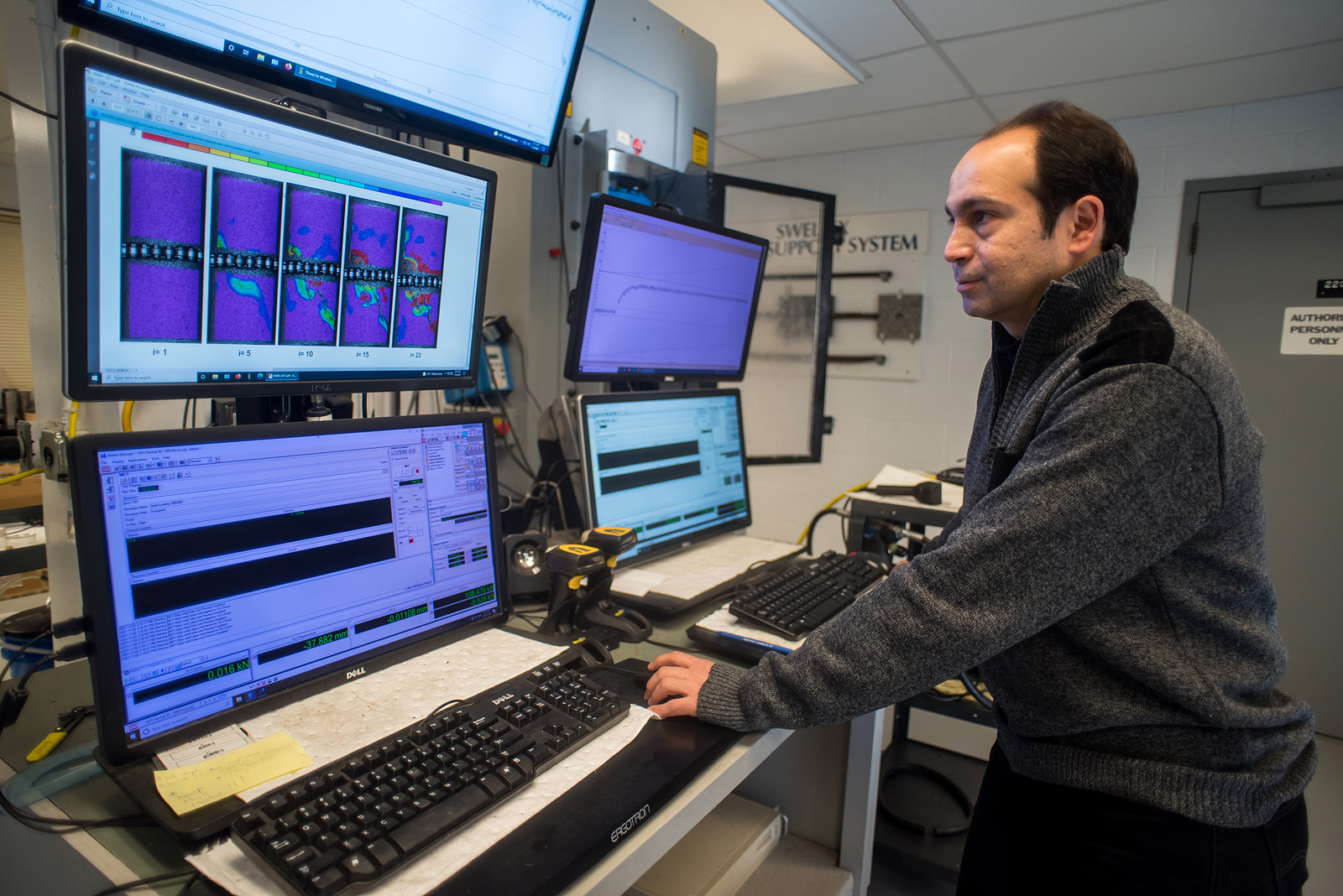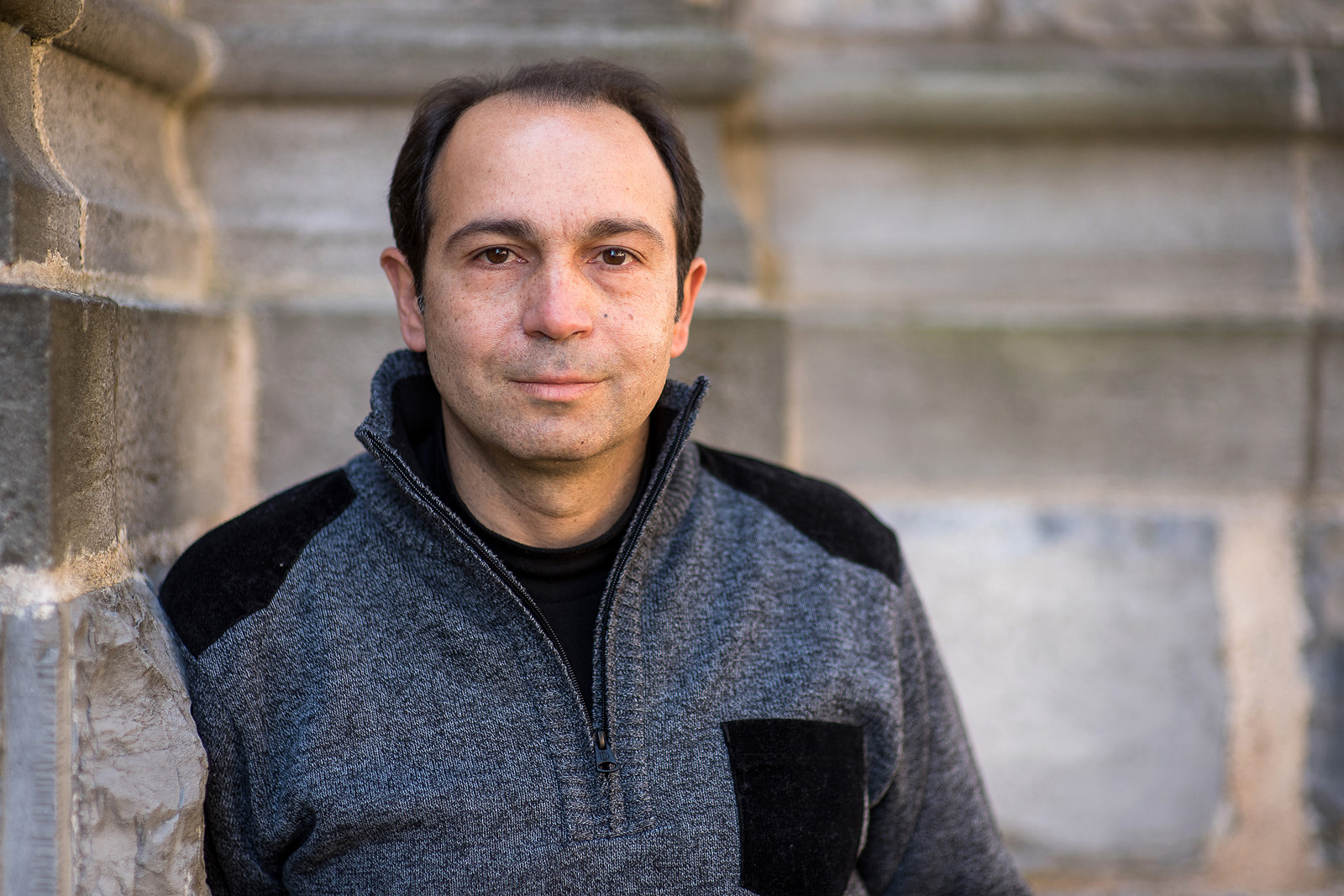An expert in geomechanics — the study of rock and soil behaviour — Abbas Taheri has spent over 20 years improving deep mining to make it cheaper, safer, and more environmentally friendly. Now he’s bringing his expertise to Queen’s as Chair in Mine Design and an Associate Professor in the Robert M. Buchan Department of Mining.
“Most of the surface resources are exhausted or will be exhausted very soon,” says Taheri. “In my view, humans will need mining for a very long time, so we have to use deep ground. There are lots of challenges around this. We are dealing with high stress conditions.”
“For example, at 3,500 m depth, the pressure of the rock above you is 9,500 tons per meter squared, about 920 times normal atmospheric pressure. Mining activities increase this pressure and triple it in the rock around the excavation, which can fracture and burst.” Taheri’s research develops a detailed understanding of such rock strain bursts.
His current research has broadened to encompass soil binding and the potential to use biopolymers as a replacement for cement in mining and civil engineering. Biopolymers are produced by living organisms whereas regular polymers are typically petroleum-based. There are thousands of different biopolymers, some commonplace enough that you can buy them in a supermarket.
“Biopolymers will help reduce the amount of artificial binders we are using right now,” says Taheri.
Taheri’s previous work in deep mining, exploring and improving techniques like backfilling (replacing the soil that is displaced during the mining process) was mostly isolated to mining. He foresees his current research in biopolymers as a project that will bridge different departments.
“This is quite a huge area,” says Taheri. “There are lots of polymers and biopolymers. I’m looking forward to collaborating with other researchers like in chemical engineering and material engineering.”
“Prof. Taheri brings a wealth of experience in rock mechanics and deep mining, with an extremely strong publication record, and we know he will establish strong connections with the Canadian mining industry, in collaboration with other researchers,” says Julian Ortiz, Associate Professor and Department Head. “We are lucky to have him in the Robert M. Buchan Department of Mining.”

Taheri has lived, and worked with experts, across the globe. Born in Isfahan, Iran, he moved to Tehran when he was 18 to pursue a Bachelor of Science in Mining Engineering and then a Master’s of Science in Rock Engineering from Amirkabir University of Technology.
The big leap came when he moved to Japan in 2005 where he completed a PhD in geotechnical engineering at Yokohama National University.
“Japan was something that was very far, distant in terms of culture and everything, the language,” Taheri says. “But it was a really great experience. I recommend to everyone just to go and stay there for a while.”
His thesis received the runner-up award from the International Society for Rock Mechanics. Upon earning his doctorate, Taheri began a fellowship at the Japan Society for the Promotion of Science, then another at the Tokyo University of Science. His transition into the world of teaching came when he was offered a position as a lecturer at the University of Adelaide in 2011.
“I was working 40-hour weeks teaching,” he says, regarding his first year in Australia. “I learned a lot about how to connect with the students, how to have some sort of interactive teaching rather than putting lots of material on the class. Just try to help them to learn. That was a bit of a challenge but an interesting challenge.”
His move to Queen’s was not an easy decision, but Taheri was enticed by the prospect of having his own rock mechanics lab and being able to develop new courses. He visited Canada in 2018 during his sabbatical, though he hadn’t been to Kingston prior to his move.
“I’m a bit of an adventurous person,” he says. “So what excites me is new challenges, new experiences, meeting new people and working with new people. When I saw that job advertisement, I pictured myself in that position. I felt this is something I might really want.”
As president of the International Society for Rock Mechanics and Rock Engineering’s Commission on Deep Mining, Taheri collaborates with members from every continent. He looks forward to continuing these partnerships, as well as those with his former colleagues in Japan and in Adelaide. At Queen’s he wants to forge new relationships with members of the GeoEngineering Centre, with faculty in different departments and with other southern Ontario university researchers.
